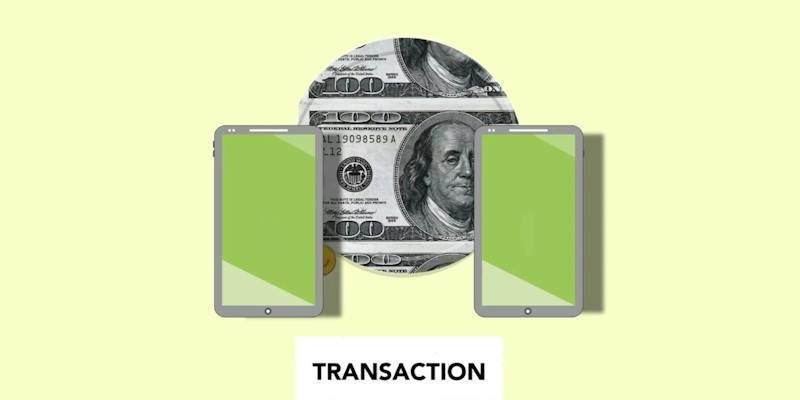Your debt to income (DTI) ratio is an important factor when it comes to your ability to qualify for a home loan. Knowing what it is and how it impacts your finances can help you understand the mortgage industry and make smarter decisions about buying a house. In this blog post, we’ll break down exactly what DTI is, why lenders care, and how understanding your own DTI ratios can help you have a better chance of getting approved for that dream home you’ve been eyeing up! So if you’re ready to take the steps towards homeownership but aren’t sure where your credit score stands in terms of obtaining financing—read on!
What is a Debt-to-Income Ratio (DTI)?
Your DTI is the amount of your income that goes towards paying off debts divided by your total gross monthly income. In simpler terms, it’s a measure of how much debt you have compared how much money you make each month. For example, if you earn $5000 per month and spend $2500 on rent, credit cards, car payments, student loans, and other expenses—your debt-to-income ratio would be 50%. Generally speaking, lenders prefer borrowers with lower DTIs because they suggest better financial habits.
Why Do Lenders Care About Your Debt-to-Income Ratio?

Essentially, lenders want to know that borrowers can afford to repay their loan over time without getting into too much financial distress. The lower your DTI, the better, because it shows that you are managing your money well and taking on a reasonable amount of debt. Furthermore, lenders don’t want to put borrowers in a situation where they are unable to make their payments. If your DTI is too high and you take on more debt with the loan, you may be at risk for defaulting in the future.
Understanding Your Own Ratios:
- First and foremost, understanding your own ratios can help give you an idea of whether or not you will qualify for a mortgage loan.
- Aiming for a DTI ratio below 36% is generally seen as the ideal goal when trying to obtain financing—however this isn’t always feasible depending on various factors.
- It’s important to keep your DTI in check before you apply for a loan so that you can increase the chances of being approved and get better interest rates. To do this, focus on paying down or consolidating existing debts while building up savings.
- Having an emergency fund or other assets will also help your case, as lenders want to see borrowers with good financial habits who are more likely to make their payments on time.
By understanding what it means and how it affects your ability to qualify for mortgage financing, you’ll be well-prepared when it comes time to talk with lenders about getting a loan.
How Does it Impact Your Mortgage Application Process?
Your debt to income ratio is an important factor in the mortgage application process. It helps lenders get a better understanding of your financial situation and whether or not you will be able to repay the loan. Ultimately, having a lower DTI can help increase your chances of qualifying for a loan with more favorable terms and interest rates.
Understanding how it works and keeping your DTI low before applying is key to ensuring that you’ll have an easier time obtaining financing for your home purchase. So take some time to understand exactly what this ratio means—it just might be the difference between achieving your goal of homeownership and not!
What is the Ideal Debt-to-Income Ratio for Mortgages?
Ideally, you should aim for a debt-to-income ratio of 36% or lower when applying for a mortgage loan. This means that your total monthly debts (including those related to the loan) should not exceed 36% of your gross monthly income.
However, this isn’t always feasible—and if your DTI is higher than 36%, there are still other steps you can take to improve your chances of getting approved. If possible, try to pay off some existing debts before applying and make sure that all other current debts are being paid on time.
Factors That Affect Your DTI Ratios:

Your DTI ratios can be affected by a number of factors, such as:
• Your monthly income and expenses (including any existing debts)
• The amount of down payment you are able to provide
• Your credit score
• The type of loan you’re applying for (conventional or government-backed)
• Your debt repayment history
By understanding each of these components, you’ll be better prepared when it comes time to apply for a mortgage. Being aware of your DTI ratios and taking steps to improve them will help ensure that lenders view you favorably—and that you get the best terms possible on your home purchase.
Tips to Improve your DTI Ratios Before Applying for a Mortgage:
• Pay down existing debts
• Build up a savings account
• Improve your credit score
• Consolidate any student loan debt
• Shop around for the best mortgage terms and interest rates
Conclusion:
Your debt-to-income ratio is an important factor in the mortgage application process. It’s essential that you understand it and take steps to improve your DTI before applying for a loan, as this can help increase your chances of being approved for financing and obtaining better interest rates. Paying off existing debts, building up savings, improving your credit score, and shopping around for the best mortgage terms are all great ways to get your ratios low before taking the leap into homeownership! With the right preparation and understanding of what lenders are looking for—you can make sure that you’re setting yourself up for success when it comes time to buy that dream house.
FAQs:
What is an acceptable debt-to-income ratio for buying a house?
Generally speaking, lenders prefer borrowers with debt-to-income ratios below 36%. However, there are other factors that come into play such as your credit score and the type of loan you’re applying for.
What is a realistic debt-to-income ratio?
The goal should be to keep your debt-to-income ratio as low as possible. Aiming for a DTI of 36% or below is the ideal, but this may not always be feasible depending on your financial situation.




